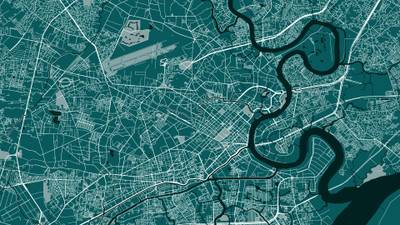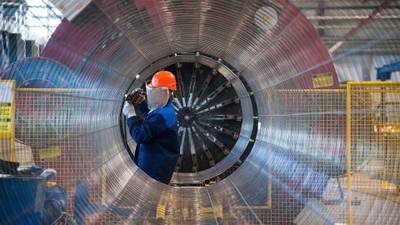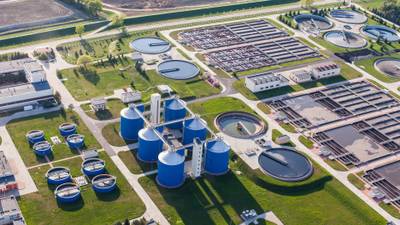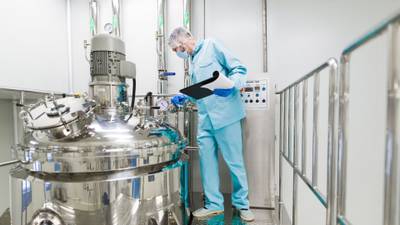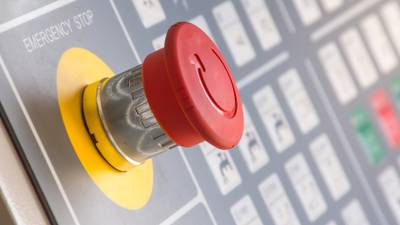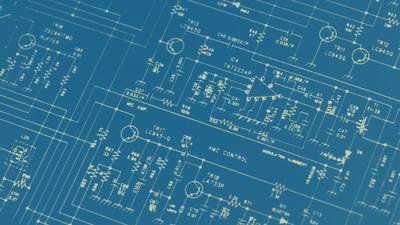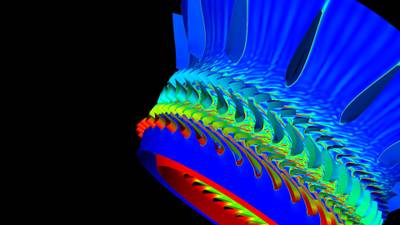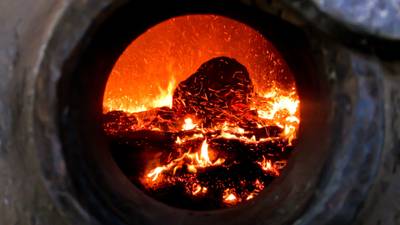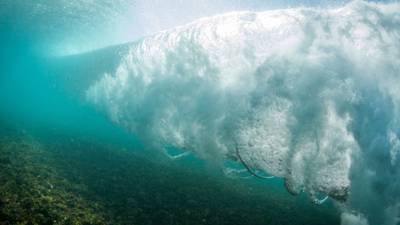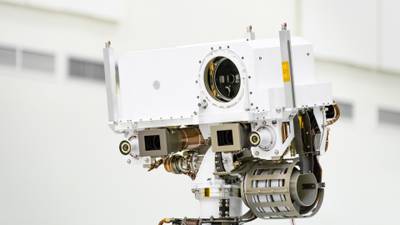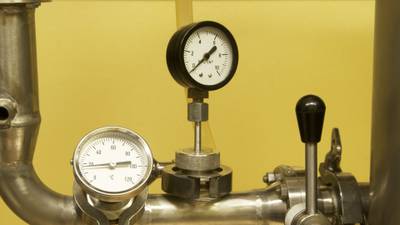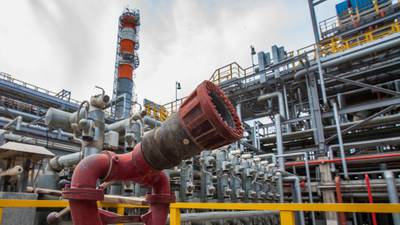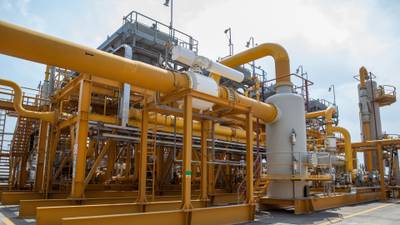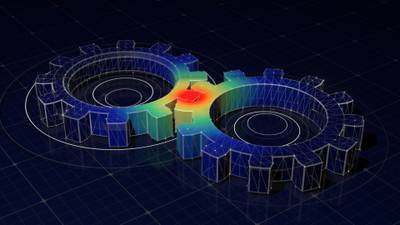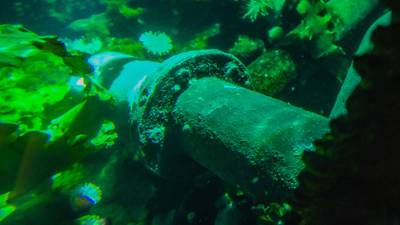Join a Loss of Containment course you can study flexibly, 100% online.
In this flexible online course, you’ll develop an in-depth understanding of a range of hazards affecting process industries.
With expert guidance from mechanical and chemical engineers and academics, you’ll learn to assess, evaluate, and prevent accidents relating to:
- fire and explosion hazards, including fuel leakage
- high pressure-low pressure (HP/LP) interfaces
- dispersion in leaking
- gas blowby.
You’ll learn to use both quantitative and qualitative tools to evaluate resulting damages in loss of containment scenarios.
You’ll also learn to design hazard controls for multiple process industries.
Who can join this online Loss of Containment course?
This course is designed for graduates who are interested in process safety issues.
It’s particularly suited to engineers and professionals working in industries including chemical, oil and gas, and nuclear.

Build credits towards a Masters degree
This online course is part of:
You can use the credits you earn with this short course towards either of these MSc qualifications.
What you’ll study
In this course, you’ll develop an in-depth understanding of the critical technical aspects of loss of containment, including factors leading to loss of containment, and consequence modelling.
Topics you’ll study
You’ll cover topics including:
- fire types, fire heat transfer, and Thermal Dose Unit (TDU)
- deluge systems and active fire protection
- thermal loading of structures and passive fire protection
- explosion and blast, overpressure, TNT method
- TNO multi-physics and pulse duration, reflected waves
- fundamentals of process chemistry and engineering
- reaction heat and combustion
- thermal runaway reactions
- high pressure/low pressure (HP/LP) interface management
- failure mechanisms
- toxic dispersion
- industry codes and standards
- identification of loss of containment events.
By the end of this course, you’ll be able to...
-
Apply engineering and scientific knowledge to analyse hazards qualitatively and quantitatively.
-
Design possible active and passive hazard controls for process industries.
-
Evaluate the damage resulting from fire, explosion, toxic dispersion, thermal runaway, and HP/LP release.
-
Use various techniques to determine explosion overpressure, and evaluate the injuries that attendees may face based on their location.
-
Determine approximate overpressure pulse duration to evaluate the mechanical impact on assets and structures.
-
Determine the flame temperature and approximate dimensions of a fire ball, jet fire, or pool fire as a result of fuel leakage or accumulated combustible material.
-
Determine enthalpies of reaction in combustion for estimating the adiabatic flame temperature in the case of failure of a cooling system in reactors.
-
Calculate the atmospheric concentration of chemical compounds at different locations of the source upon accidental release.
-
Size reactors and cooling systems to avoid thermal runaway incidents in process and chemical industries.
-
Size pressure relief valves in HP/LP interfaces to avoid blow ups.
Choose the University of Aberdeen for online loss of containment training

Earn as you learn
We fit around full-time work, so you can build qualifications while you keep earning a salary.

You’re in expert hands
We’ve been training world-class engineers for over 100 years and delivering online learning for decades.

20% alumni discount
University of Aberdeen alumni get 20% off this online course.
How you’ll study
Online learning
This distance-learning Loss of Containment course is delivered flexibly, 100% online.
You can learn with us anywhere in the world, no student visa required, and manage your study hours to suit you.
Your teaching
This course is taught at Masters level.
Teaching is delivered through MyAberdeen, our online Virtual Learning Environment (VLE). It holds all the materials, tools and support you’ll need in your studies. Take a look around MyAberdeen.
You can access your learning materials on computer, smartphone and laptop, 24 hours a day. You’ll find a range of resources available, including:
- pre-recorded video lectures
- online tutorials
- slide shows
- discussion boards with your tutors and peers
- the online resources of our award-winning Sir Duncan Rice Library.
Your tutors
This course is delivered by an internationally experienced team of academics and engineers from our School of Engineering.
This course is assessed online.
You’ll be assessed via:
- a course assignment (worth 20% of your final course grade), and
- an online exam (80%).
The course totals approximately 150 hours of study and assessment time. That’s around 10 – 15 hours per week.
This is an indicative guide to the time required for a typical student at this level to achieve the learning outcomes. This includes time for independent study, as well as teaching and assessments.
You can largely set your own study hours each week to cover the materials. MyAberdeen is available 24/7, so you can log in and study when it suits you.
Activities with deadlines
There will be some activities scheduled at fixed times, such as assessments with deadlines, or meetings with your tutor. But otherwise, you can access and work through the course at your convenience.
Our first-class support structure will ensure that you aren’t alone in your studies. You’ll have contact with your coordinator via email, MyAberdeen and Microsoft Teams. You can use social media and discussion boards to chat with your fellow students too.
We provide a wide range of services to support you in your studies and beyond:
- Careers and Employability Service
- Disability support
- IT support
- Library support
- Student Support Service – help with finances, stress, wellbeing and non-academic issues
- Student Learning Service – study support, with advice sessions available via phone or Skype
- Aberdeen University Students’ Association (AUSA) – run by students for students
- Toolkit – clever apps and free training that can make your study life easier
Wherever you are in the world, you’ll feel part of our very special Aberdeen learning community.
Your teaching team

Dr Majid Aleyassin
Majid is a Lecturer in Mechanical Engineering, and your course coordinator. He’s been with our School of Engineering as a Researcher and Lecturer since 2006. Majid holds a PhD in Mechanical Engineering and his research interest is in the field of applied dynamics of solids and structures.
View Majid’s profile
Dr Ines Graca
Ines is a Chemical Engineer, and a Lecturer in Chemical Engineering at the University of Aberdeen. She holds a PhD in Chemical Engineering, and her research interests include catalysis and reaction engineering.
Ines has over 10 years’ experience in teaching and research on various chemical engineering topics related to biorefinery, including heterogeneous catalysis, biomass valorisation into fuels and chemicals, and plastic waste catalytic recycling into fuels and chemicals.
View Ines’ profileWhere this will take you
Towards a Masters
You’ll earn 15 credits at Masters level (SCQF Level 11) with this course. You can use these credits towards our:
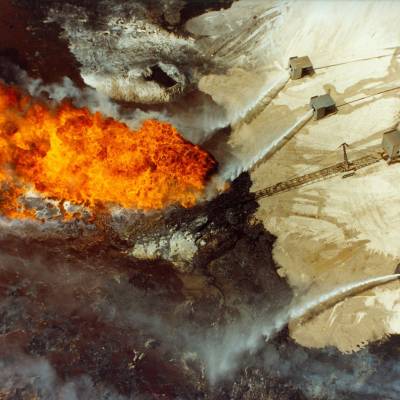
Accredited Masters in Process Safety
Become a qualified process safety engineer, ready to work in any chemical processing sector. Join an IChemE-accredited online degree you can fit around full-time work.
View MSc Process Safety
Masters in Advanced Chemical Engineering
Develop your knowledge and qualifications in chemical engineering, design and practice, with an emphasis on safety and sustainability. Study flexibly online in this degree that fits around full-time work.
View MSc Advanced Chemical EngineeringCareers
This course provides a learning pathway for careers related to the safety of process industries.
It will prepare you to seek roles at entry, mid, and senior levels in the process and chemical industries.
Continuing Professional Development (CPD)
Your employer or professional institute may recognise this course for CPD hours. Talk to your employer or institute to find out more.

Free career support
Access our free careers service while you study.
- 1:1 appointments
- CV checks
- Interview prep
- Job opportunities
Entry requirements
Entry requirements
We welcome students from all over the world.
This course has no formal entry requirements. You do not need to provide proof of your qualifications.
But you do need to check the entry guidance above to understand the level of teaching delivered, to decide if this course is right for you.
If you do not have qualifications from the UK, check the equivalent teaching level for your country.
Visa requirements
You do not need a student visa to study online with us.
English language requirements
Teaching is delivered in English.
You do not have to provide proof of your English language skills to join this course. But we want to make sure that you can use English well enough to study successfully.
Recommended level of English
For this course, we recommend the following level of English language proficiency.
These are our Postgraduate Standard requirements, and these are minimum scores.
IELTS Academic, IELTS UKVI Academic, or IELTS Online (not IELTS Indicator or IELTS General Training)
- 6.5 overall
- 5.5 for listening, reading and speaking
- 6.0 for writing
TOEFL iBT or TOEFL iBT Home Edition
- 90 overall
- 17 for listening
- 18 for reading
- 20 for speaking
- 21 for writing
- TOEFL DI code is 0818
Cambridge English: B2 First, C1 Advanced, or C2 Proficiency
- 176 overall
- 162 for listening, reading and speaking
- 169 for writing
LanguageCert Academic / LanguageCert Academic SELT
- 70 overall
- 60 for listening, reading and speaking
- 65 for writing
Oxford ELLT Digital – English Language Level Test Online
- 7.0 overall
- 5.0 for listening, reading and speaking
- 6.0 for writing
PTE Academic (online test not accepted)
- 62 overall
- 59 for listening, reading, speaking and writing
Skills for English: SELT
- B2 pass with merit
Duolingo – tests taken from 1 July 2024 onward
- 120 overall
- 95 for listening, reading and speaking
- 105 for writing
University of Aberdeen English Pre-sessional Programme (PSE)
- Pass
- Valid for one year. Refresher can be offered if out of date
Pre-sessional academic English preparation programmes undertaken at other UK universities
- Pass at an equivalent of 6.5 (C1)
- B2 in all four skills
- Certification must be within one year prior to the start of your course
For full information about language requirements, see our English Language Requirements page.
You will need access to:
A computer (PC, laptop or Mac) operating on either:
- Windows 10 or later
- macOS 10.15 (Catalina) or later.
Most teaching materials are smartphone- and tablet-friendly. But we recommend a proper laptop or desktop for completing assignments comfortably.
Reliable internet access
We recommend:
- a wired connection
- a minimum download speed of 2 Mbps so you can take part fully in live sessions.
Speakers or headphones
- We recommend a headset with built-in microphone and earphones if you’re likely to study in an environment with background noise.
- A webcam is optional, but you may like to use one for some interactive sessions.
Software
We’ll give you access to Office365 applications. This means you can use online versions of Microsoft Word, Excel, and PowerPoint and install these programs on up to five personal devices.
If your course requires specialist software, we’ll provide you with access to this and a licence that lasts throughout your studies.
See our detailed IT requirements for more information.
When you study with us, you can expect a first-class support structure so that you’re never alone in your studies.
But learning online does mean you have to motivate yourself and manage your own time.
Your most important commitment will be time – the time to work through, reflect on and understand your teaching materials.
Before you start a course that involves a high degree of independent study, we recommend looking at the time you will be able to devote to your studies each week:
- Be realistic
- Create a weekly schedule as a guide
If you have any questions about studying online, get in touch with our friendly team. We’re here to help.
Fee payment
Your course fee needs to be paid in full before you start your course.
We accept payment via Visa Debit, Visa Credit and Mastercard.
Ways to save
You may be able to get help funding this course via:
- discounts – if any discounts are available for this course, they’ll appear in the section below
- employer sponsorship – we accept full and partial fee payments from sponsors.
Find out more about funding options.
Student card
All our students are entitled to a University of Aberdeen student card. This gives you access to a range of student discounts around the city and online.
Learning resources
Access to all the books and resources you need are included in your tuition fee. They’ll be made available to you online and you do not have to buy your own copies.
Printing
You may wish to set aside a small budget for printing, depending on how you like to work.
This course has no formal entry requirements. You decide if it’s suitable for you.
The course is delivered at Masters level. At this level, you’d usually have at least:
- a 2:2 UK undergraduate degree (or equivalent), or
- relevant experience that supports this level of study.
Apply for this course




